Anson Boon: Rotten to the Core
Rising star Anson Boon is playing John Lydon aka Johnny Rotten in Danny Boyle’s upcoming TV miniseries Pistol, based on the rise and fall of the Sex Pistols. He talks to Rolling Stone UK about his family, transforming his body and mind to become the singer, and life behind the scenes of the show
By Hannah Ewens
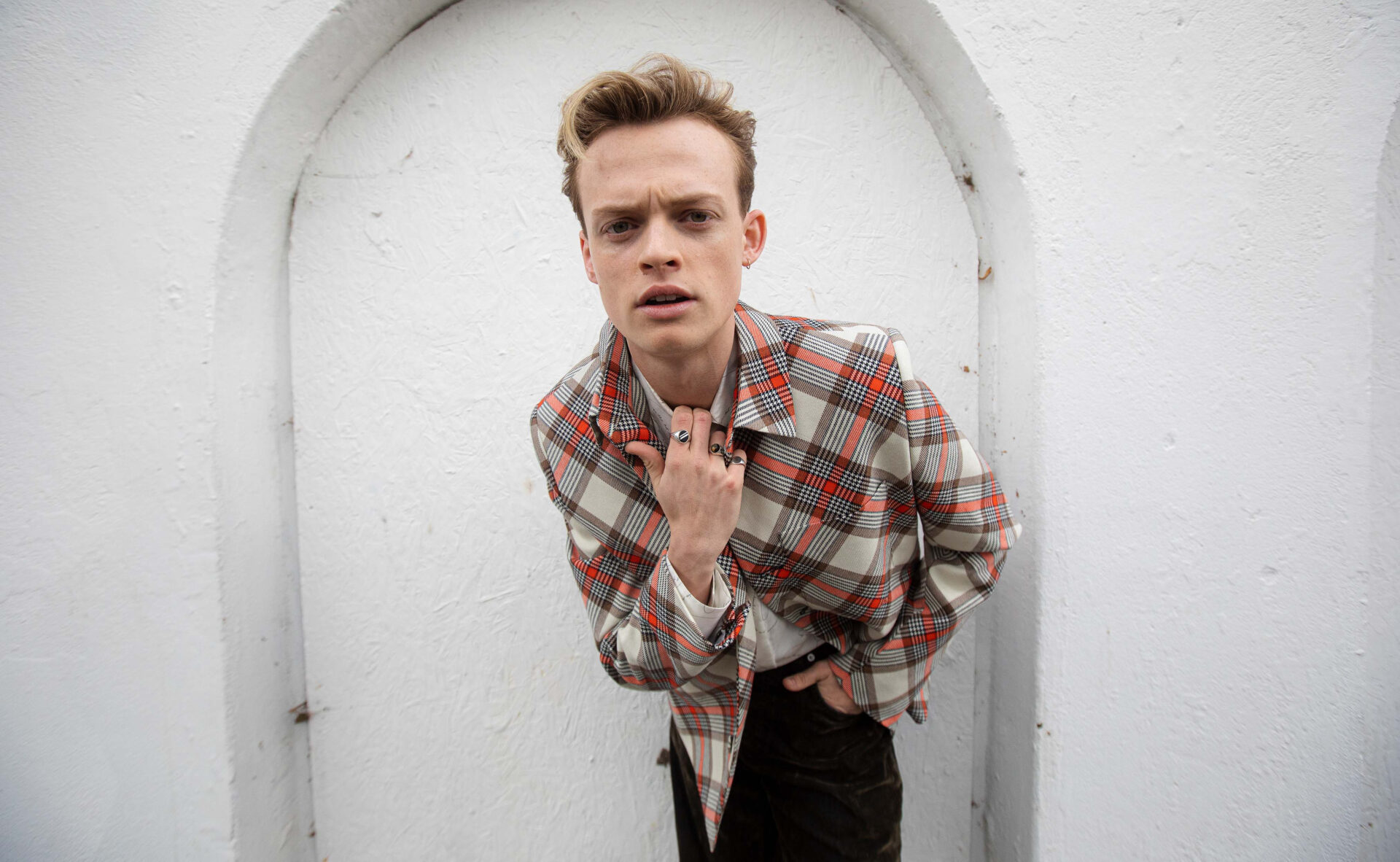
When Anson Boon was given the role of Johnny Rotten in Danny Boyle’s Sex Pistols show ‘Pistol’, he immediately thought of the abundance of their knock-off merch available in Camden. “Oh my God, I’m on a fucking Camden Market stall now!” he laughs, remembering this as he leads us up the high street. This area of north London was so fundamental to punk that despite aggressive re-gentrification, visual signifiers and even spiritual echoes of that period are everywhere.
Punk exploded here in the summer of 1976. On one July weekend the Ramones and The Stranglers played at the Roundhouse and Dingwalls, while Chrissie Hynde and members of The Clash, The Damned and the Sex Pistols were reportedly in the audience, all yet to make their debuts but inspired by what they witnessed.
The Sex Pistols’ brief and incendiary career only lasted two years, but the band were central to establishing what punk was and the movement’s legacy of melding music and politics in a way that transformed rock music. Boon wasn’t aware of this history before he prepared for his role — more the classic rock photographs and neon and black typography — but is fully educated now, a punk fan at 22.
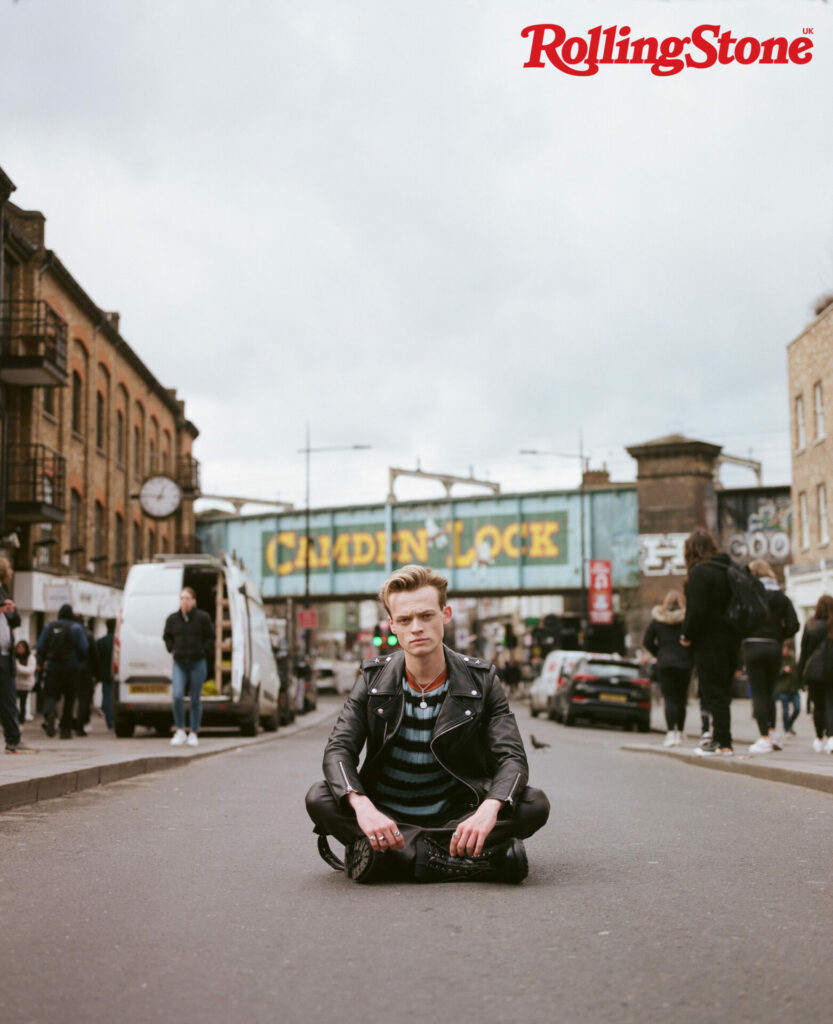
Anson Boon in front of the iconic Camden Lock sign (Picture: Jesse DeFlorio) 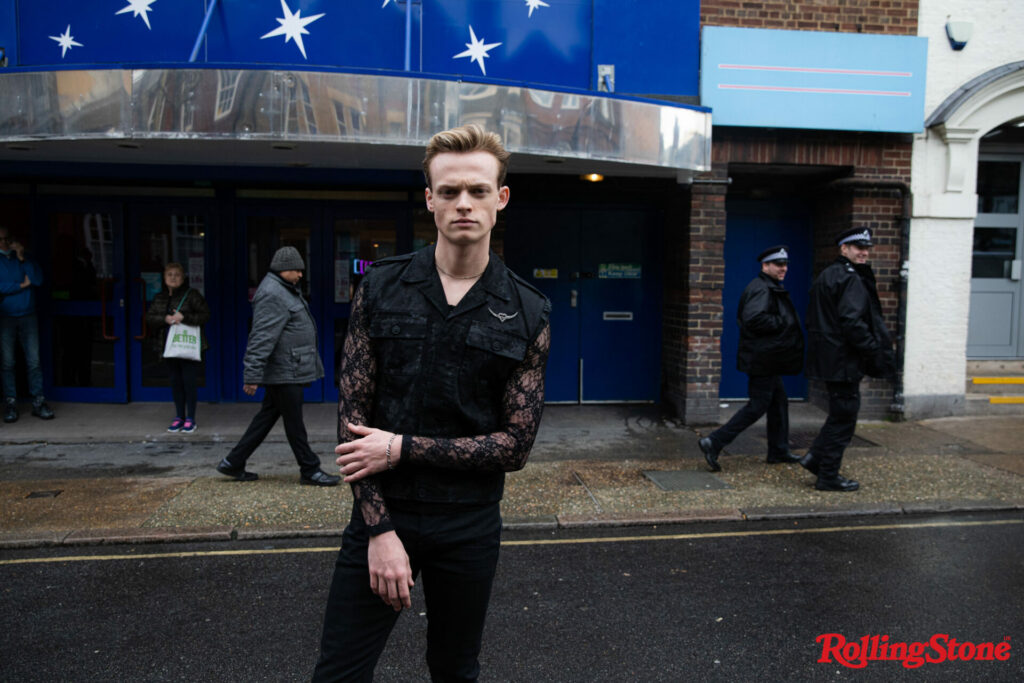
Number’s Up: Anson Boon outside a bingo hall in Camden (Picture: Jesse DeFlorio) 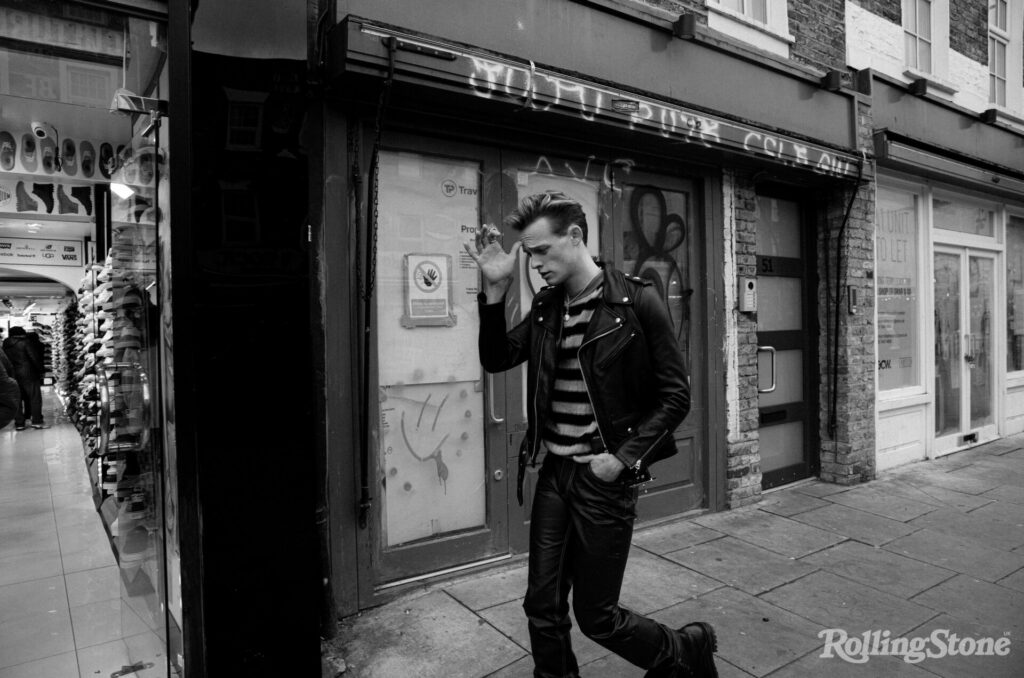
Anson Boon strides through Camden (Picture: Jesse DeFlorio) 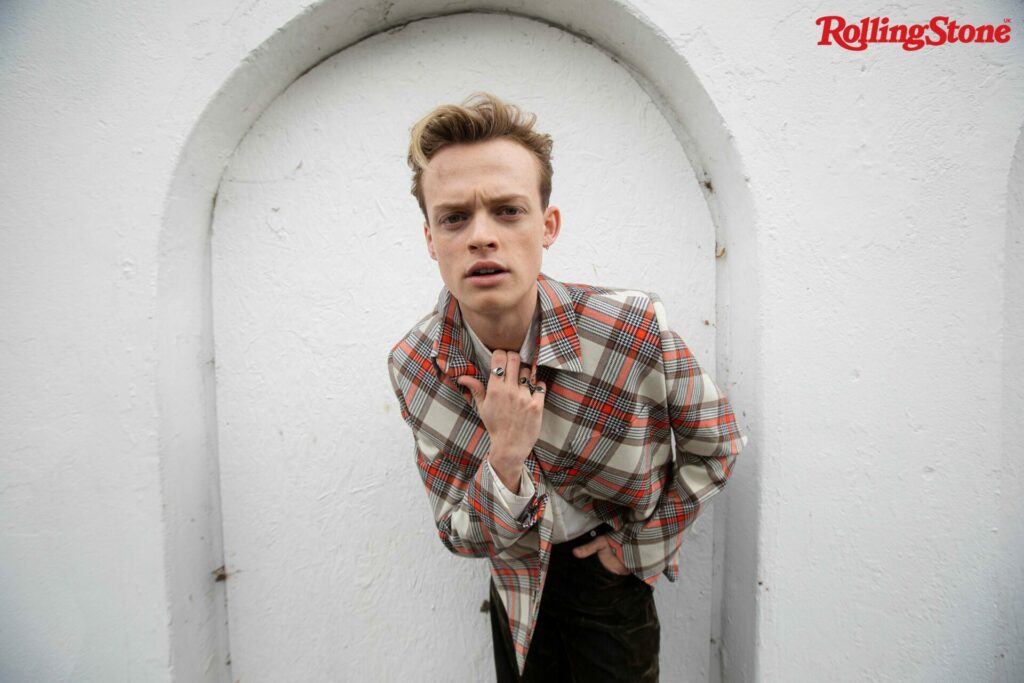
Anson Boon poses for Rolling Stone UK (Picture: Jesse DeFlorio) 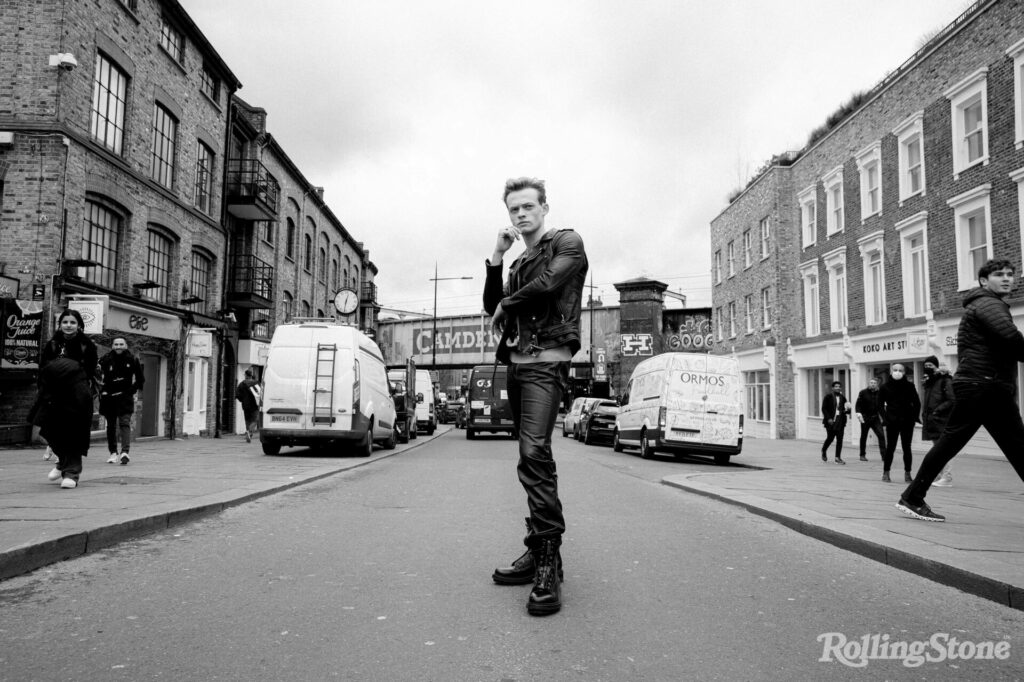
Anson Boon poses for Rolling Stone UK (Picture: Jesse DeFlorio) 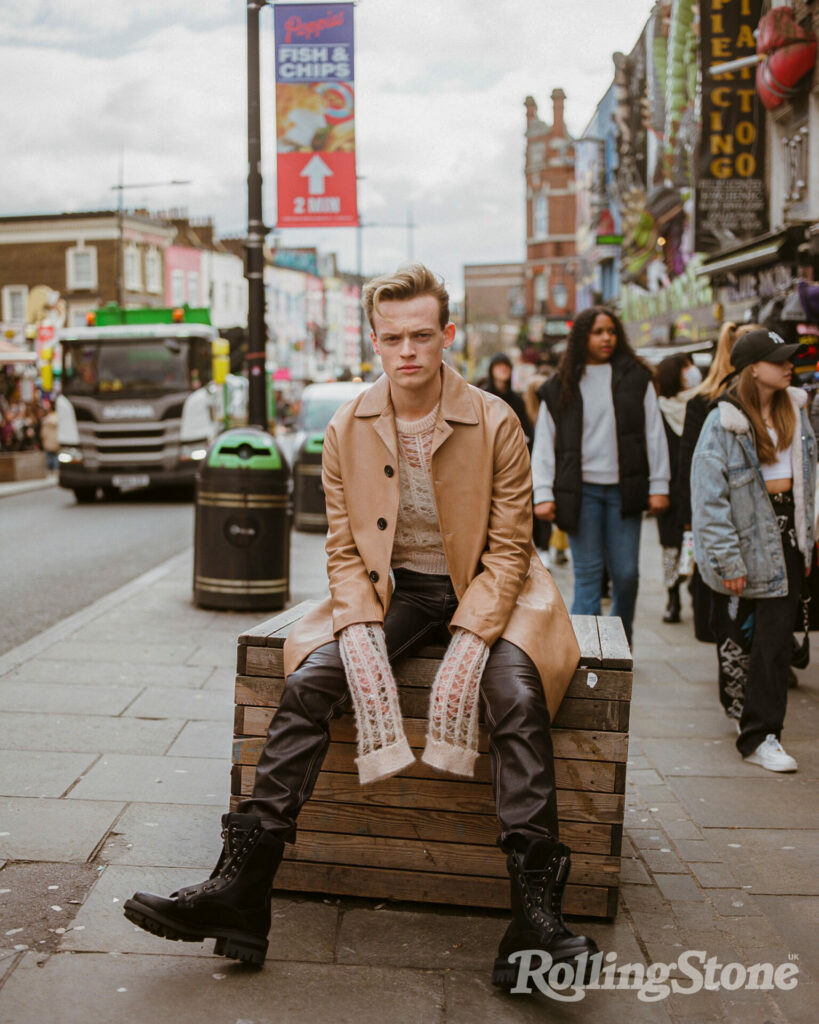
Anson Boon poses for Rolling Stone UK (Picture: Jesse DeFlorio) 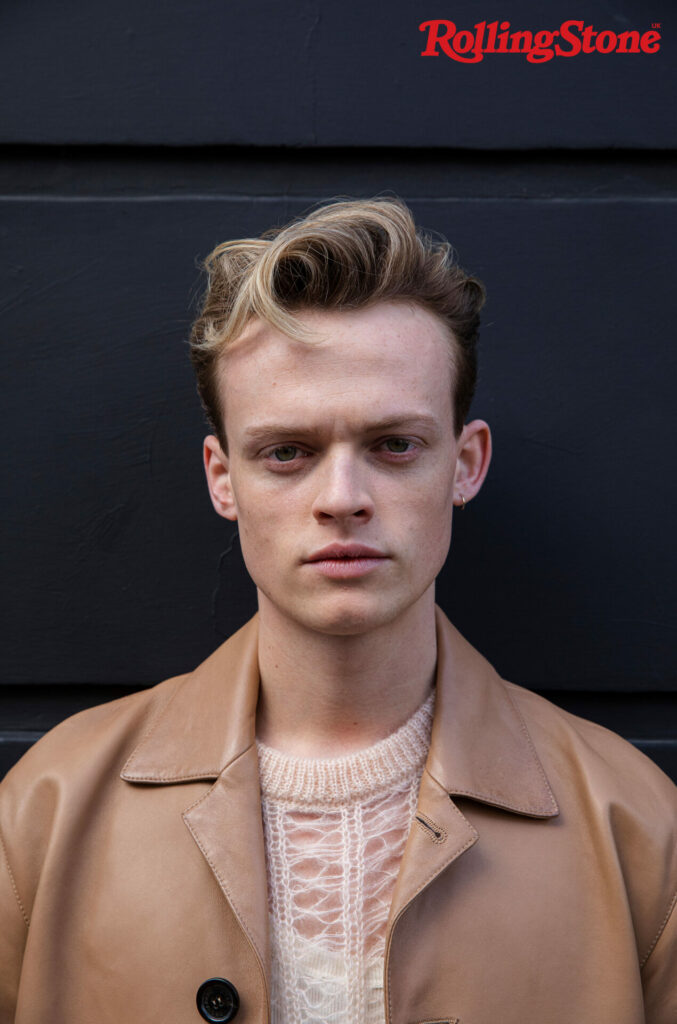
Anson Boon poses for Rolling Stone UK (Picture: Jesse DeFlorio) 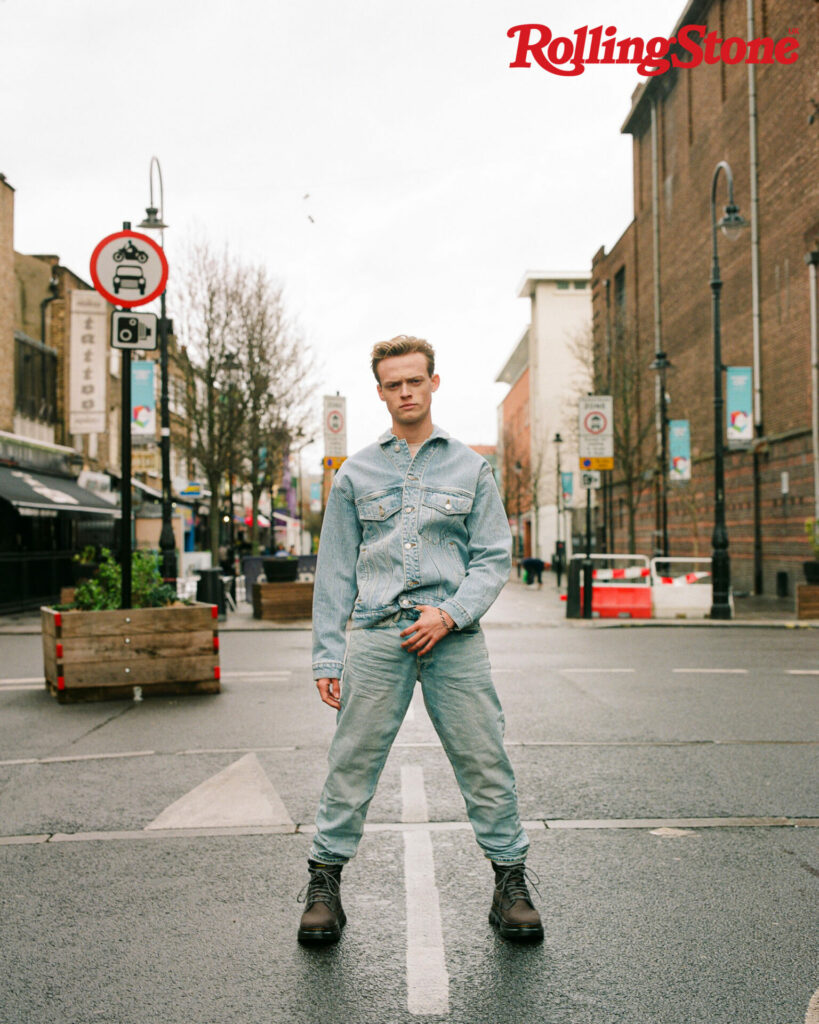
Anson Boon poses for Rolling Stone UK (Picture: Jesse DeFlorio) 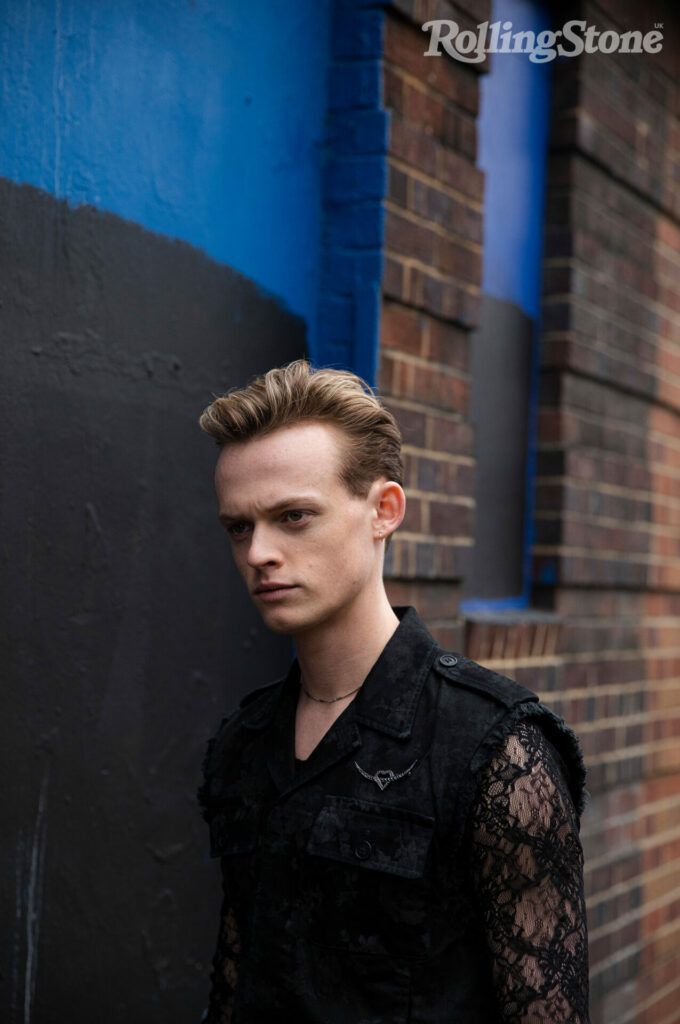
Anson Boon poses for Rolling Stone UK (Picture: Jesse DeFlorio)
For our interview we look for a coffee shop, but at Boon’s insistence, we quickly give up and go to a pub: “I want my first Rolling Stone interview to be in a pub with a pint in my hand,” he says.
No one recognises him in the tourist-filled streets or the pub, which is busy for 2pm on a weekday, but Boon is one of the most hotly tipped actors in the country. He had other career options open to him: he was academic at school and his teachers wanted him to go to university, but he chose to study acting at college (he quickly dropped out, in favour of real-world acting experience). “I think people should always be encouraged to go and study practical things or chase their dreams,” he explains. “That’s something I had in common with John Lydon, because he had no easy access into the career that he went on to boss, he just chased down that dream. I had no access to acting and I just absolutely chased it because I knew I had to.”
In only a few years, Boon went from one line in Netflix’s ‘The Alienist’ (“the line was ‘Good evening, sir’ and I charmed the director into being given it”) to starring roles in the drama ‘Blackbird’, alongside Susan Sarandon and Kate Winslet, and the thriller ‘The Winter Lake’ with Emma Mackey.
We speak about his journey from auditioning for ‘Pistol’ to channelling Lydon for the role, both physically and mentally. About 15 minutes into our conversation, the middle-aged man on the table next to us is joined by his family and we go to a different table to avoid the loud chatter. “I’m sorry you have to move: I don’t know you but you have a lovely voice; it’s relaxing. I’m enjoying just listening to it,” the man tells Boon shyly.
You do have an arresting deep voice and it wasn’t what I had expected given that British actors are usually upper middle class or have successful family in the arts, so speak in Received Pronunciation.
My dad worked for a garage equipment company or something like that. My mum worked in an office as a receptionist. My mum’s from Tottenham in London and my dad’s from a farming family in the middle of nowhere. I’ve got a younger brother who works at a farm.
We’re like chalk and cheese, but I love that. And I just grew up in this really crap town in Northamptonshire. It’s a town that no one leaves.
I was always obsessed with the idea of Hollywood when I was little. My mum used to take me and my brother to the local cinema at the weekend and there was a huge water tower next to it, like what you see outside Warner Brothers and on TV. It was this idea of Hollywood that was something so far removed from where I was from and the kind of surroundings that I had.
I always knew I’d be an actor: I had no doubt. I distinctly remember one time being 10 or 11 sat in the back of my dad’s car driving over to my nan and granddad’s and I’d seen ‘Forrest Gump’ that week and been blown away by it. I said to my dad, “I’m gonna be an actor” and I just remember thinking, ‘They’re laughing now, but they’ll see….’
When you say a crap town, what specifically about it is bad?
I still live there so I’ll not say the name of it, but it’s a small-town vibe. Working-class people. All the men are tradesmen, all the women either work in the school or local offices. A part of the reason I felt this connection with John Lydon was that he’s also from north London, from a really working-class family. And my mum’s family were all relocated by the council out of London before I was born. So, I kind of understood that background of being really close to your family because that’s all you have. Growing up, my cousins were all my best friends.
If you were to leave, would that be a betrayal to your family? Was pursuing acting already a betrayal?
Perhaps that’s why I haven’t moved away yet. My family are so supportive about it, but acting is so alien to us and everything I’m doing, I’m doing for us for the first time. It’s not like I’ve got parents that have seen it all before. If you grow up in London or New York or LA or perhaps even Manchester now, even if you didn’t go to a private school or a drama-centred school, you find yourself encountering things to do with this industry.
Casting directors now will go to primary schools in parts of London that they wouldn’t have used to have gone in. They won’t do searches out of the city. I just remember feeling this huge brick wall in between me and the dreams that I wanted to achieve. I like that separation of going home and having a different life elsewhere now, but I do feel a bit like Hannah Montana sometimes.

Were your parents creative at all?
My dad was a DJ and quite involved with acid house in the 90s, always at an amateur level, but he did get paid a couple of times. He played this cool nightclub in Birmingham: Steering Wheel Club. They’re both from working-class backgrounds and didn’t have access to the kind of creative education that kids probably do now, but given the right environment, my mum and dad would’ve been creative people.
My mum is a people watcher. My mum is, in my opinion, the best judge of character out of any person I’ve ever encountered in life. She can meet someone and in five seconds she knows everything about them. People watching is a big hobby of mine, too. I’m totally reading you right now, trying to know what’s going on in your head.
I’ll try to keep my face blank then. Did you have to audition for Pistol?
It was my first audition that came through during the first lockdown. My phone hadn’t rung at all and since I was 18, I’ve been lucky enough that I’ve worked quite a lot. I got an email about a Danny Boyle project and immediately I was gripped. And then they told me it was a Sex Pistols show and initially they said, “Audition just for ‘general Pistol’.” You know, “We’re not gonna assign you to one yet.” So, I went in, and they gave me a monologue and four scenes and I picked two of them and then read them.
I’ll never, ever forget getting the email where they came back and said: “This one now is specifically to audition for Johnny Rotten.” And the role description, I’ve gotta get it up, ’cos it is so good. [Boon gets out his phone to find the email.] It said: “John Lydon: intense, difficult, witty, lacerating, a natural-born provocateur, classical cheekbones and a tortured angular frame, confronting and utterly compelling”. And I thought, ‘Whoa, you just sold me that character.’ And then the scene that they sent was John Lydon’s audition to be part of the Sex Pistols.
“I had no access to acting and I just absolutely chased it because I knew I had to”
Anson Boon
How self-referential!
An audition within an audition. And he famously was chucked in front of the rest of the band by Malcolm McLaren and asked to sing ‘I’m Eighteen’ by Alice Cooper into a shower head instead of a microphone. They sent me that and I was thinking, ‘If they’ve sent me the scene, they don’t want someone to do it half-hearted.’ I was like, ‘You know what? I’m just gonna absolutely go for this.’ And I knew that I would 100 per cent get it or that they would look at it and say: “Delete that, never send that to Danny Boyle.” I got my dad to film my audition — I’d do all my takes with my mum and dad. I’m just most relaxed with them.
That’s very sweet. How did you prepare for the role? It’s a bit of a sideways look at the Sex Pistols but my favourite music book is ‘Clothes, Clothes, Clothes’ by Viv Albertine. Have you read it?
Yes, I read that in prep! It’s brilliant. Danny [Boyle] is a big fan of Viv Albertine as well, which made him a good fit for this. ‘Pistol’ is anchored by Steve Jones’ — the Pistols’ guitarist — book, so me and Danny agreed that I should start with the script, obviously, then go to Steve’s book. And then go to John’s books and he’s got three books.
I called upon other books like Chrissie Hynde’s and Glen Matlock’s just to get other people’s perspectives to pull things together. Vivienne Westwood has a great documentary about her. Then I watched loads of videos and created, like, a shrine in my trailer that was just photos of Lydon all over the world, timelines, old pieces of material, Vivienne Westwood material that he used to wear and stuff, just to make me feel like I was really in it. And we had a three-month band camp as well. Do you know the band Underworld?

As in the electronic group who made the ‘Trainspotting’ song ‘Born Slippy’?
The guys that do that, they were our band coaches.
That’s so fun.
It was amazing. They’ve worked with Danny a lot before. Karl, who writes the lyrics, draws upon his environment to write, which is what John Lydon does. And Rick, who produces the music, his whole thing is, like, manipulating sounds to make music that evokes weird emotions in people. That’s also what John Lydon does. So, to work with these two was important in my building of this character.
We did this three-month band camp, all of us learned to do our instruments and I learned to sing. And I remember on the first day… Lydon speaks and sings a lot higher than me, so I couldn’t sing in his octave at the start. I had to work with this vocal coach to completely elongate my vocal range. We got there in the end.
Did the filming happen in original locations across London?
We did a lot of the ‘inside’ stuff in this building on the South Bank, an abandoned studios ITV used to be in. Everything else was [on] location around London. We turned this abandoned road in St John’s Wood into 1976 King’s Road, which was amazing. We took over the Thames and we recreated the Sex Pistols riverboat moment. We filmed in the 100 Club, Hammersmith Odeon, the Marquee Club, The Roxy.
“I’ll never, ever forget getting the email where they came back and said: ‘This one now is specifically to audition for Johnny Rotten’”
Did you play live shows to audiences in those venues then?
Yes, and because no one had been to a gig for ages, thanks to Covid, everyone was extra hyped up in the audience.
I’ve seen multiple Daily Mail articles with photos of you dressed as Lydon on set, which is amusing but not surprising given the excitement in the UK for the show.
Paparazzi pictures! The media frenzy was a tiny little fraction of a version of what it must have been like at the time. The media were loving my pink blazers and stuff like that. We did give them a cheeky finger. I think Danny advised us to.
My granddad goes up to my brother and says, “Does your mother know?” And my brother Jayden was like, “What?” And he goes, “Have you seen the paper? Anson’s in the paper!” I was on one of the first pages or something like that. My family lost their minds.

Besides the preparation you’ve mentioned, did you meet the real Sex Pistols or key figures involved with British punk?
Yeah, so I did things like go to Vivienne Westwood’s boutique right on King’s Road. It’s called World’s End now. I used to take trips down there just to get what it feels like to walk up and down the King’s Road. I would treat myself to wacky clothes from her shop to know what that feeling is like and the intimidation of walking in there and how inspiring it is. And we got to speak to some of the real people, which was great. All the Pistols except John.
It’s famously been made without Lydon’s approval. He took his former bandmates to High Court — and lost — over the right for the show to use the Pistols’ music.
You have to ask Danny Boyle… obviously I would’ve absolutely loved to speak to and meet John. But not being able to meet him just fuelled my ambition to chase authenticity. I just hope that if he watches it, he can recognise that every decision I made in my performance was out of sheer respect for him.
I spent so much time with John in my head and had such an intense preparation period to become him. I got down to just under eight stone. I was so involved in reading his books and got really involved in his design process. I had 14 different wigs in the end and fake teeth obviously, ’cos he famously had rotten teeth. I made sure that all the sets that revolved around his life were accurate to what he describes in his writing. I made sure that I ate food that I know he likes.
What did he eat?
Everything had to be pickled. He loved pickled beetroot. His mum used to give him leafy salads and salad cream when he was little. Red Stripe is his favourite beer, so I made sure that I drank Red Stripe. He’s left-handed and I’m right-handed and I learned to become totally left-handed, which was insane. I’m now pretty much ambidextrous. I just felt so in love with him.

Your DJ dad must have been impressed with all this intricate music culture knowledge you were acquiring.
Yes, and I think anyone that’s into music has to be into this show just because it was revolutionary. The most special thing about this story was that these were four working- class, noisy boys that society was absolutely against. They weren’t meant to achieve anything and somehow they revolutionised music, fashion and culture for ever.
As we’ve seen just walking around Camden today, you see the ransom note font everywhere. You see people dressed like them, people’s hairstyles are still copying them. The aesthetic and sound were so unique and the first of its kind. My mum and my dad are just as obsessed with punk now as I am. You can see I’m obsessed with it — I’m wearing safety pins all over my bloody jackets. The Sex Pistols have influenced me for ever.
Photography: Jesse DeFlorio
Styling: Joseph Kocharian
Hair and make-up: Brady Lea
Fashion assistant: Sacha Dance
